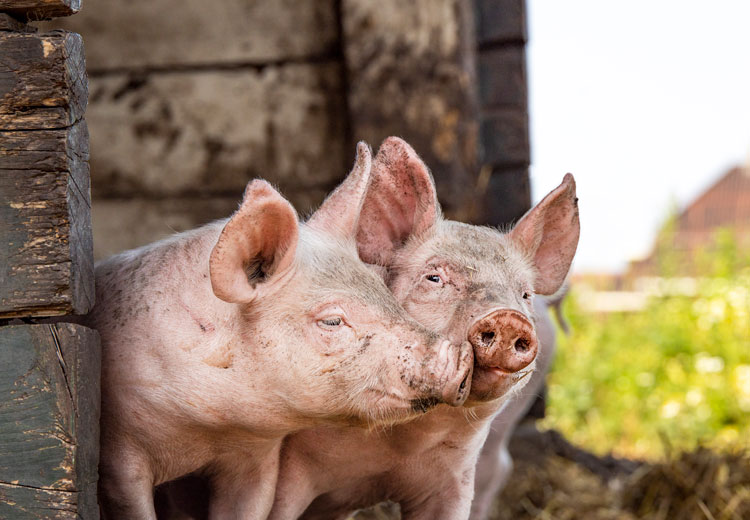CityU’s One Health centre works to curb the rise of new diseases

Sponsored by
Scholars working at the Centre of Applied One Health Research and Policy Advice aim to connect research and policy to make an impact on human, animal and environment health
The world needs a more integrated approach to deal with diseases, says Dirk Pfeiffer, director of the Centre of Applied One Health Research and Policy Advice at City University of Hong Kong (CityU).
The Covid-19 pandemic has shown that animal health and welfare is inextricably linked to human health, and that interdisciplinary research linking medical, veterinary, environmental and social sciences is vital to overcome threats to the health of the global ecosystem, Pfeiffer says.
The “one health” concept reflects the principle that human health is dependent on the health of animals and the environment. “However, a key aspect is how to connect the science with policy such that it has an impact on policy,” Pfeiffer says.
The centre, established in 2016, aims to bridge the divide between the natural and social sciences, and to generate and synthesise science-based evidence to guide decision-making. Being based in the cosmopolitan city of Hong Kong means scholars can straddle the Western and Eastern view of the world, bringing both perspectives into their research. “It’s what attracted me [to join the centre],” explains Pfeiffer. “This part of the world is incredibly dynamic and interesting.”
The centre has a special focus on infectious animal diseases, such as African swine fever and avian flu. The increasing demand for meat has resulted in an intensification of livestock farming over the last 50 years, which has been accompanied by a greater frequency of infectious diseases among animals and a rise in antibiotic resistance.
African swine fever causes fatal disease in domestic and wild pigs, spreading across Europe since its emergence in Africa in 2007. In 2018, the disease was introduced to China, which is the world’s largest producer and consumer of pork. Millions of pigs have died from or been culled due to the disease since. The infection has now spread to most South-east Asian countries. The centre works closely with United Nations’ Food and Agriculture Organisation, the World Organisation for Animal Health, and national governments to produce science-based guidance for the prevention and control of African swine fever.
Avian flu is highly contagious in poultry populations and can also infect humans. To understand and combat this threat, the centre is working with partners in the UK, India, Vietnam, Sri Lanka and Bangladesh as part of the GCRF-funded One Health Poultry Hub. The project investigates the links between socio-economics, human behaviour and disease transmission, identifying parts of the poultry production chain that are especially risky in terms of disease spread. The project also tests and evaluates interventions to curb these risks.
“The continuing intensification of [animal] production is most likely where the emergence of disease is going to happen,” Pfeiffer says.
Farmers use antimicrobial drugs not just to treat animals suffering from disease, but also for the prevention of disease, Pfeiffer says. This significantly increases the risk of antimicrobial resistance, where pathogens become immune to treatment with a particular antibiotic.
“It’s an extremely worrying global epidemic, and certainly a bigger problem than the Covid-19 pandemic, but much slower and more subtle. In contrast to a viral disease where we can develop effective vaccines, antibiotic resistance can only be prevented by using less antibiotics and developing new ones, both of which is very challenging,” Pfeiffer says.
The centre works with local poultry, swine and fish farmers to reduce antimicrobial use. The centre also engages in capacity building for veterinarians working in government in the region through international organisations such as the United Nations’ Food and Agriculture Organisation and the World Organisation for Animal Health, Pfeiffer explains.
“We want them to be able to deal with animal disease more effectively, and that will actually serve the goal of reducing the risk of [disease] emergence for both animals and humans,” he says. An example of this is the development of Epidemix, an online tool for disease model visualisation and teaching with a focus on making dynamic modelling of infectious diseases more accessible for policy makers.

Dirk Pfeiffer graduated in veterinary medicine in Germany in 1984. He obtained a PhD from Massey University of New Zealand in 1994, followed by nine years working as an academic there. Since 1999, he has held the chair in veterinary epidemiology at the Royal Veterinary College (RVC), UK. In 2016, Pfeiffer joined City University of Hong Kong as Chow Tak Fung Chair Professor of One Health, while still maintaining a 20 per cent appointment at the RVC. Pfeiffer has worked extensively at the science-policy interface through advisory roles for the EU, the United Nations’ Food and Agriculture Organisation, the World Organisation for Animal Health and a wide range of national governments.
Find out more about the Centre of Applied One Health Research and Policy Advice.